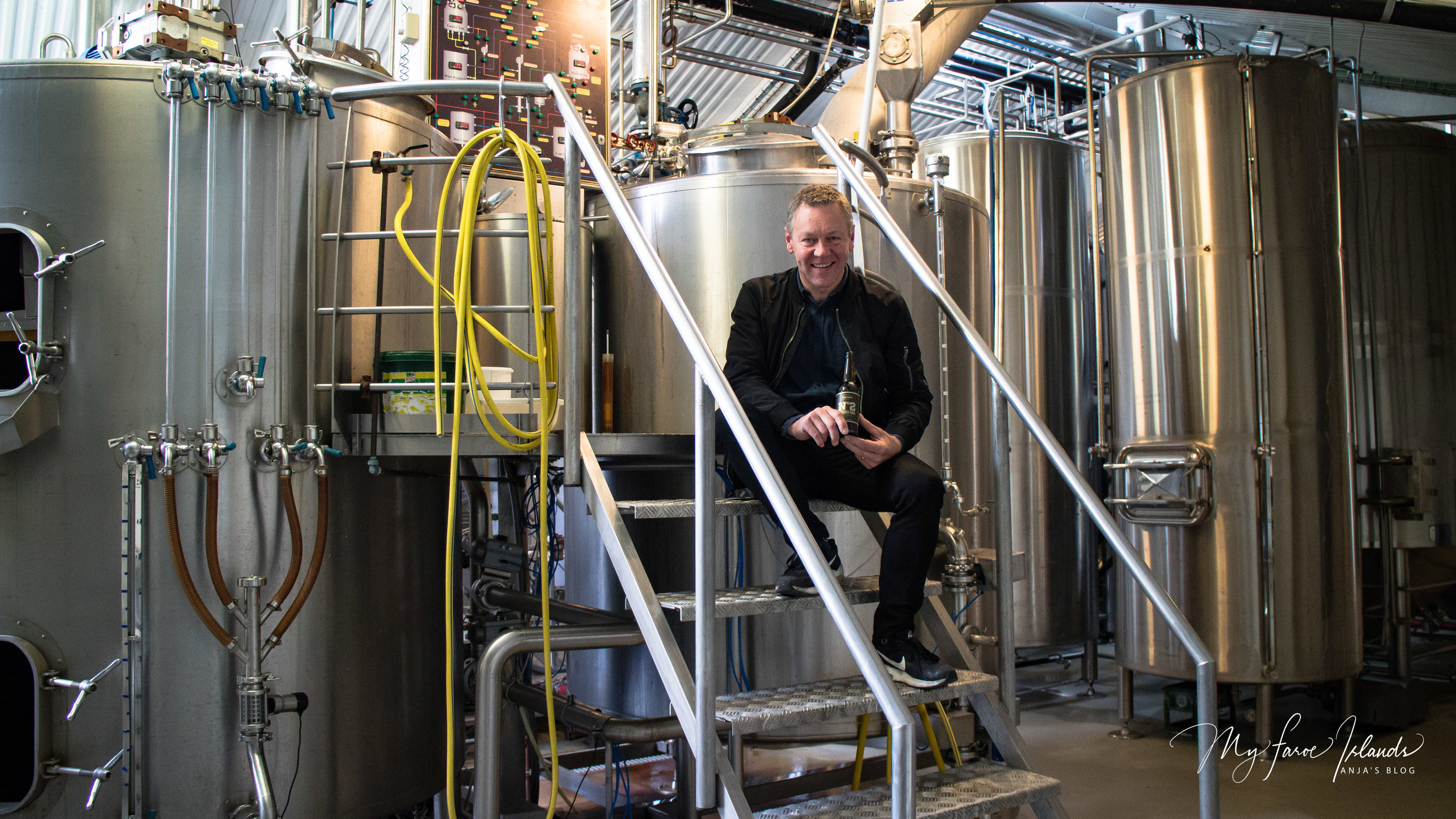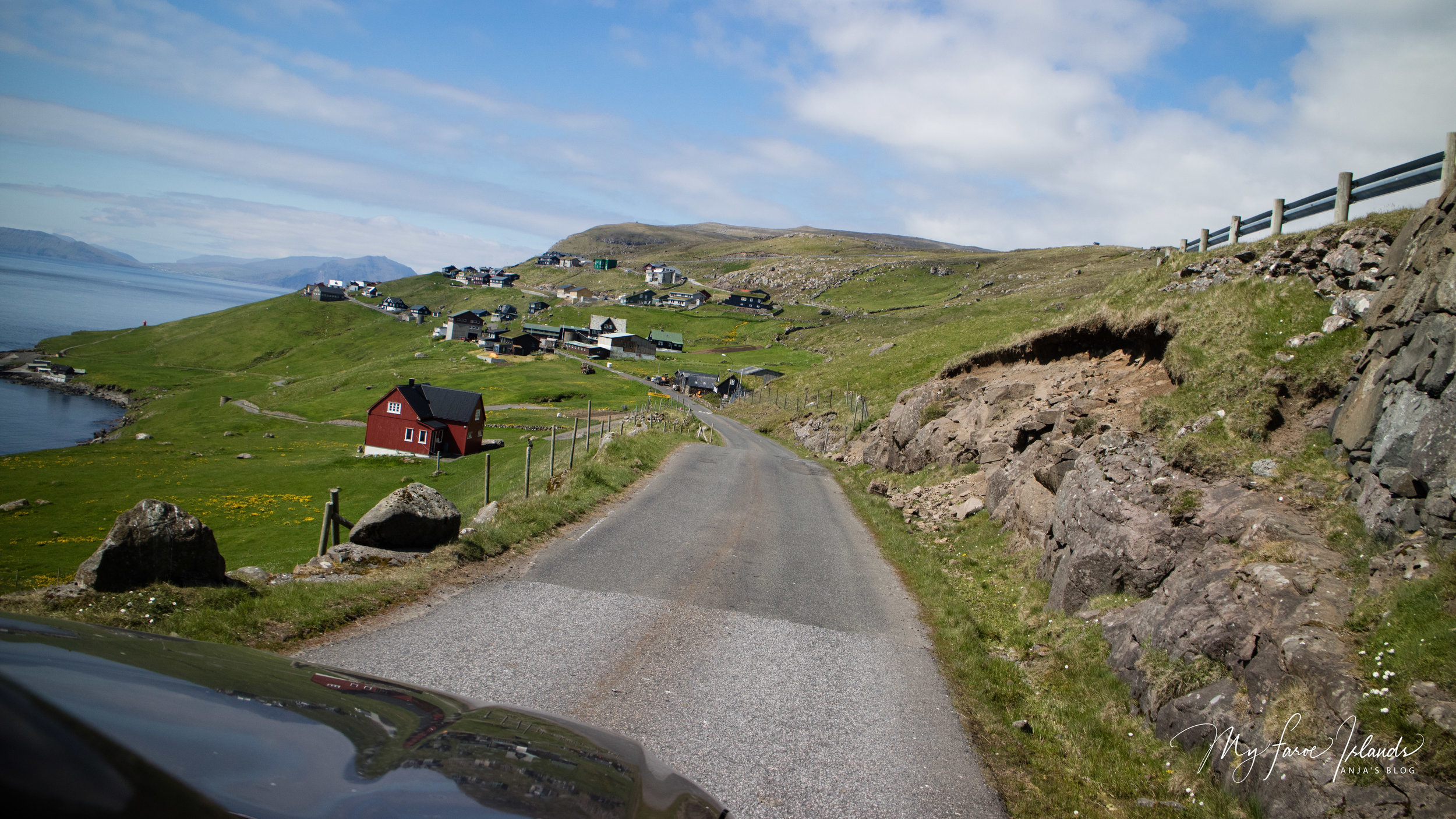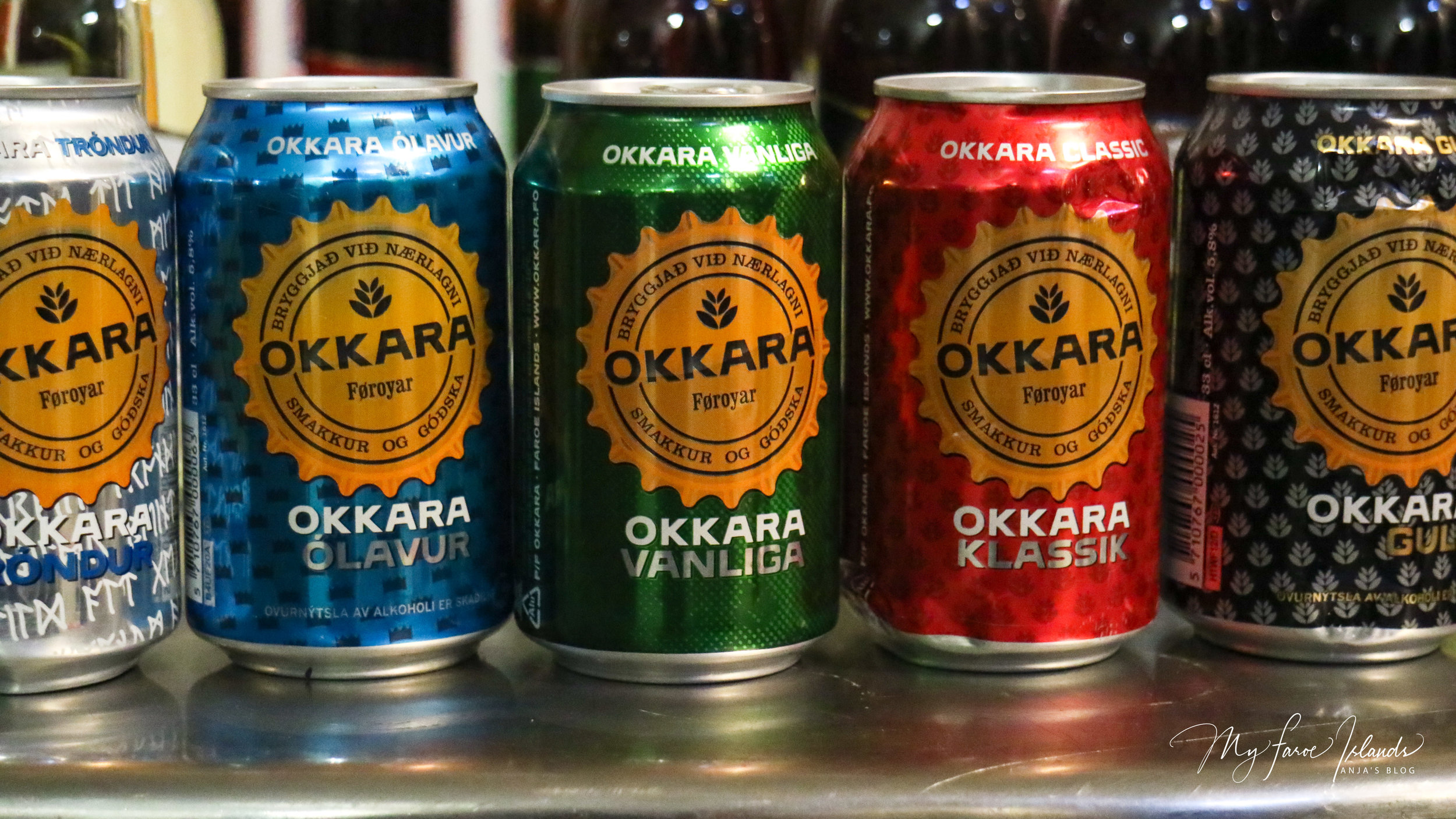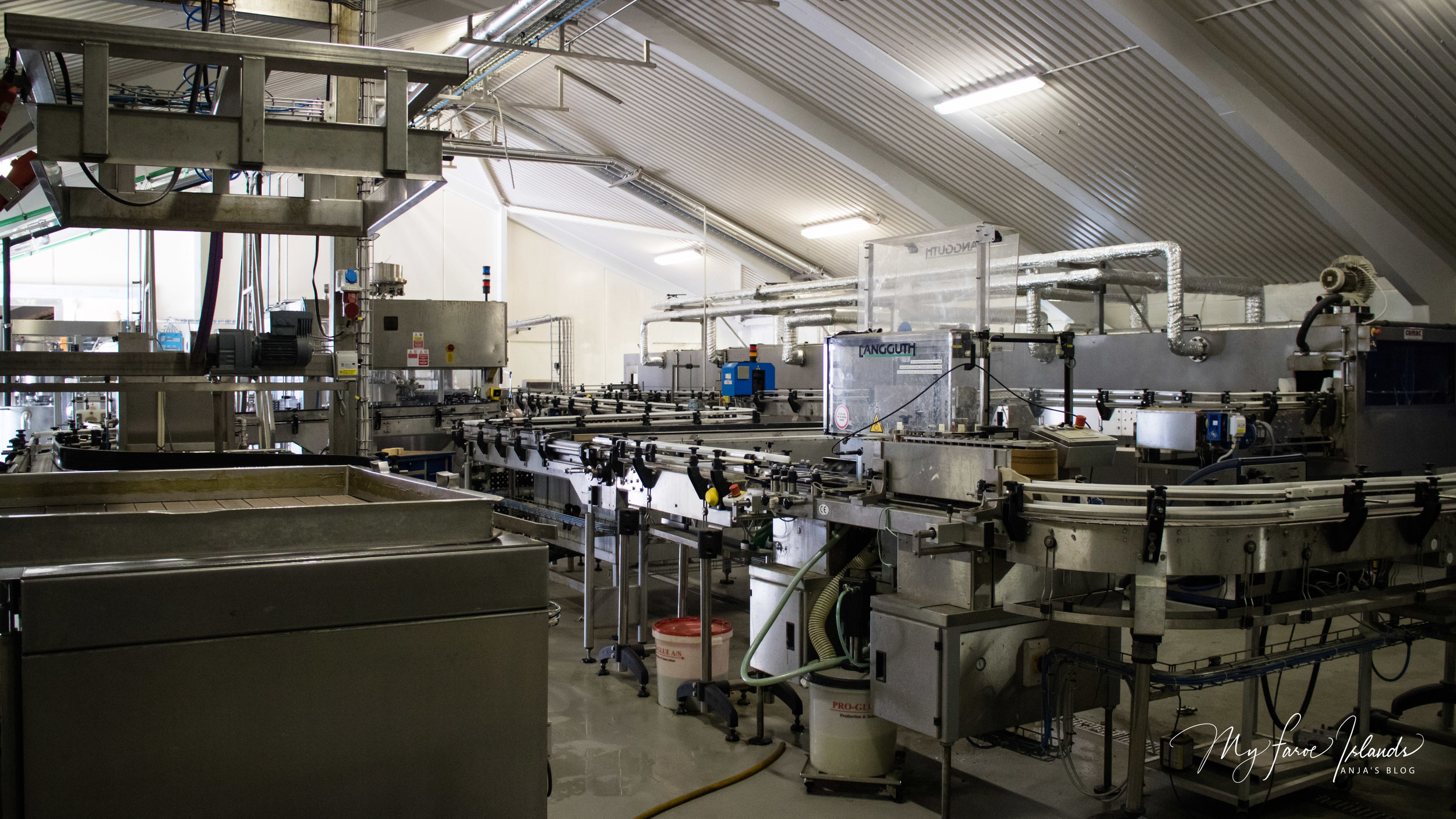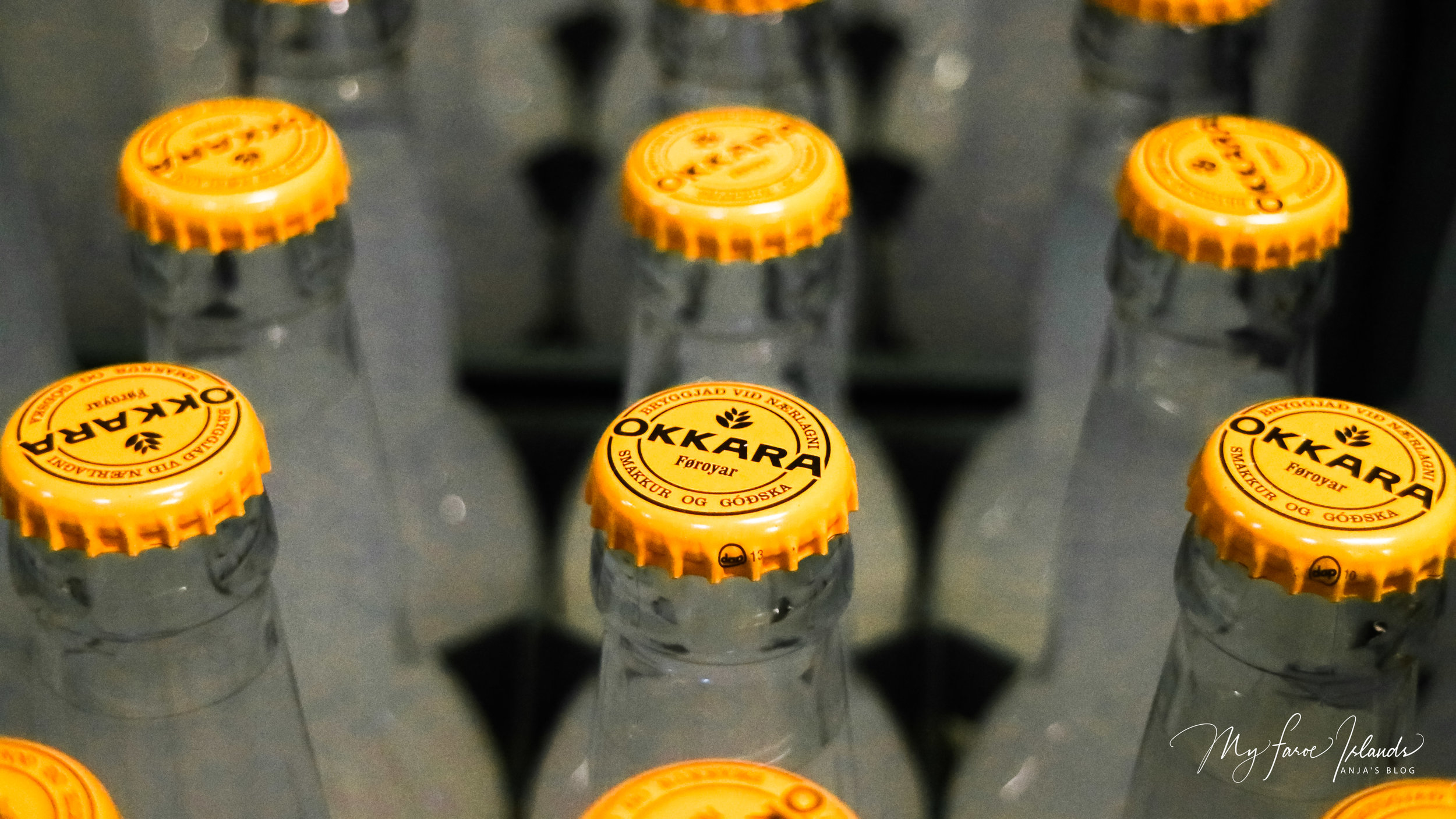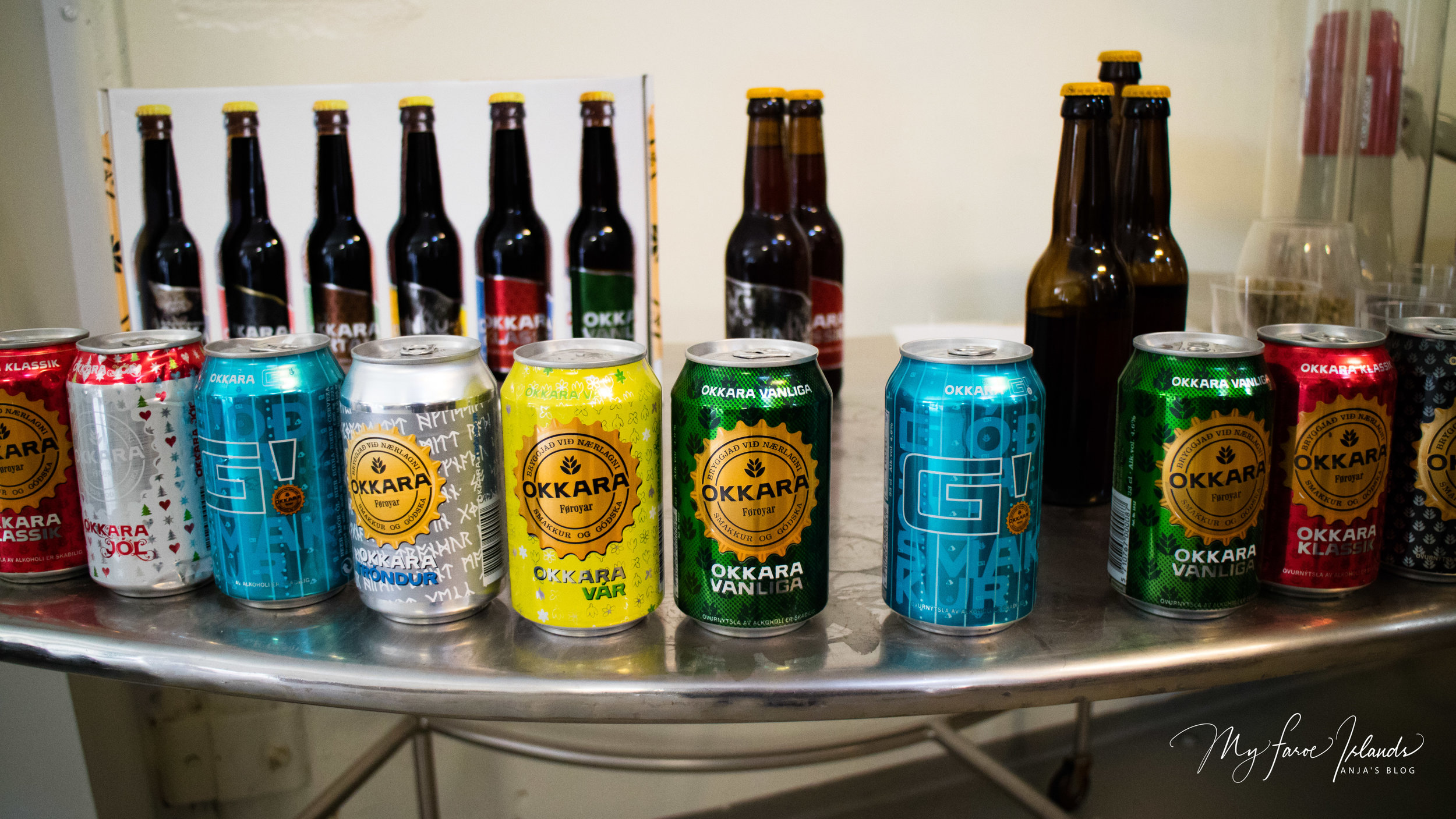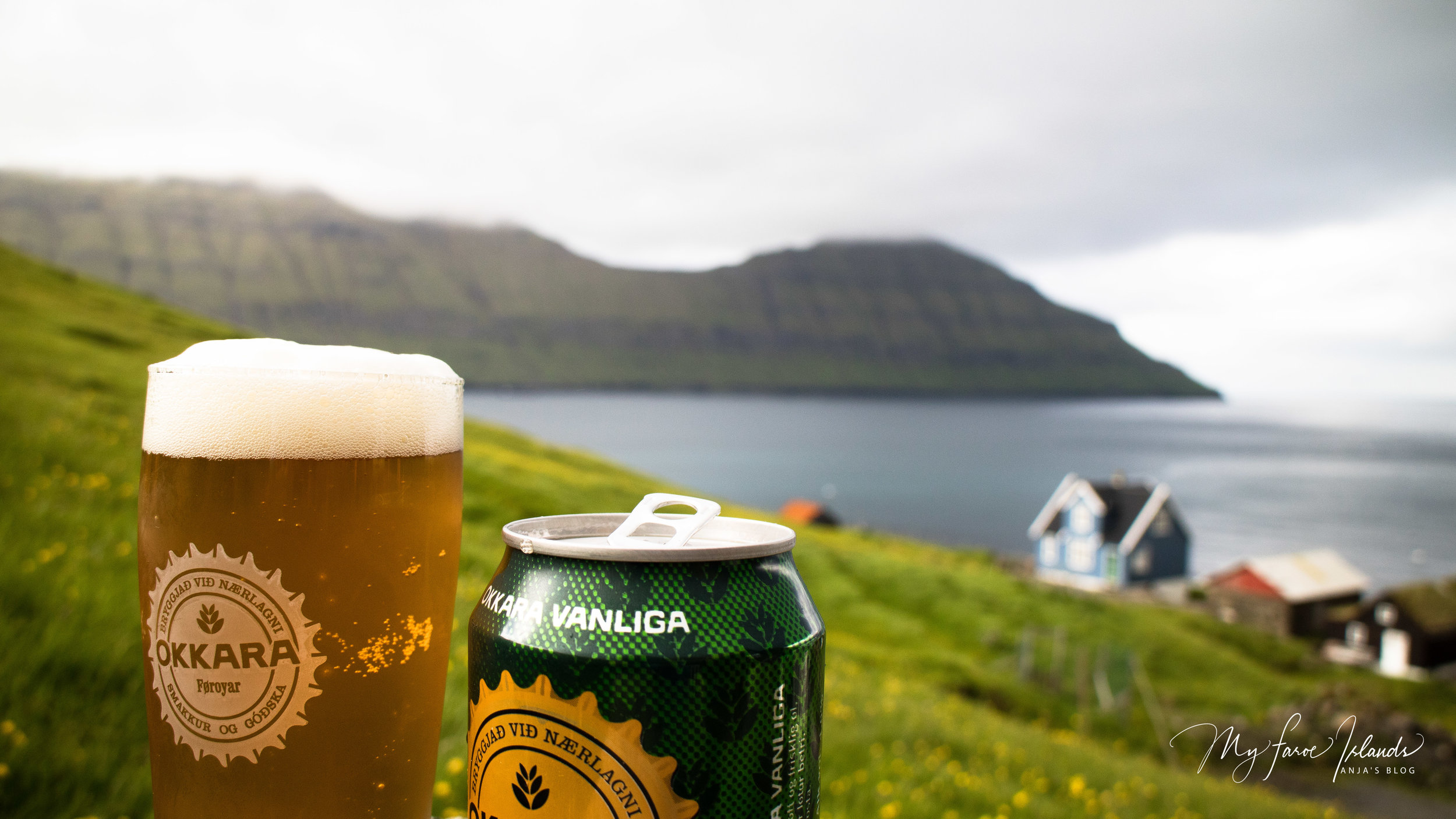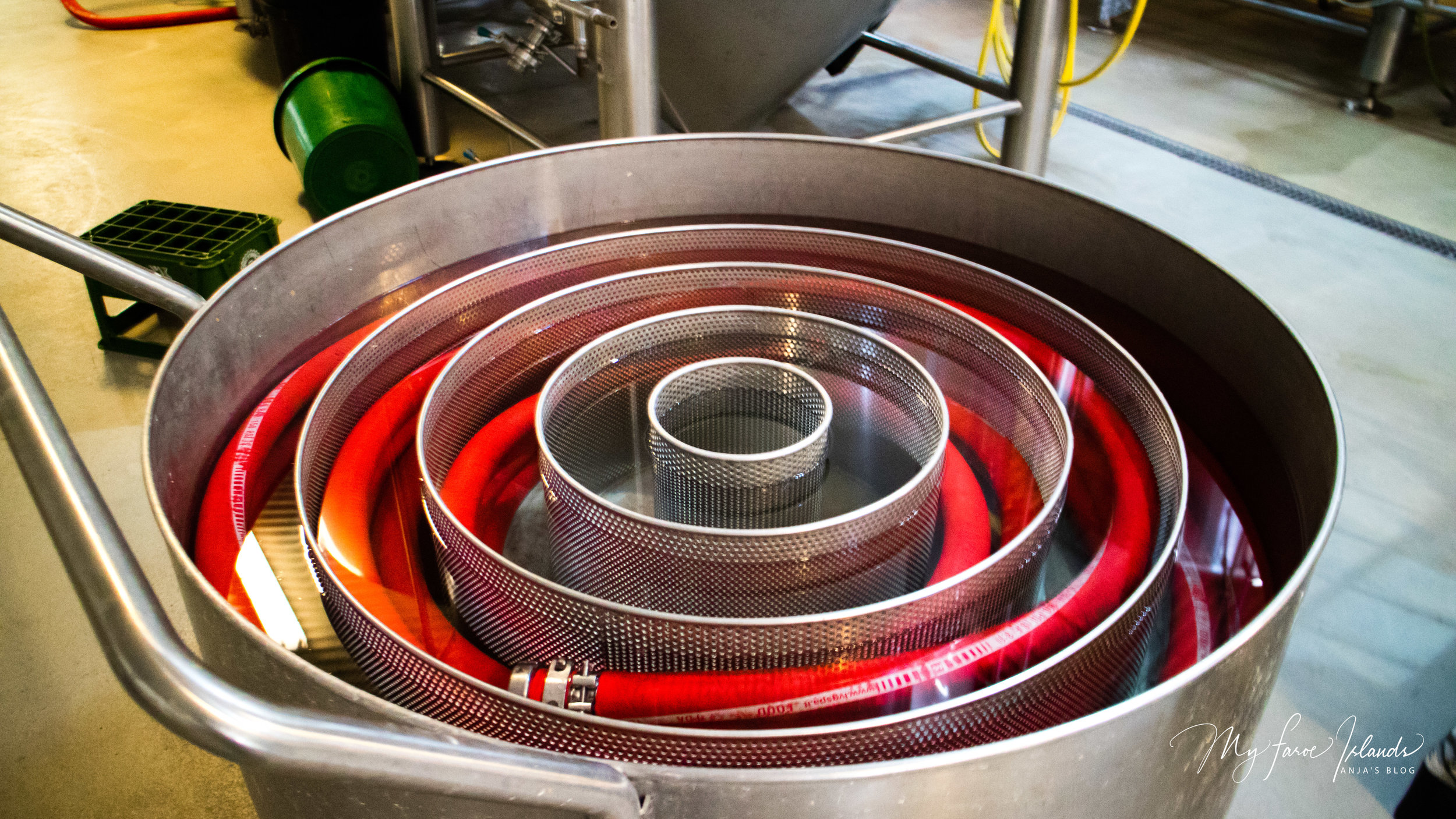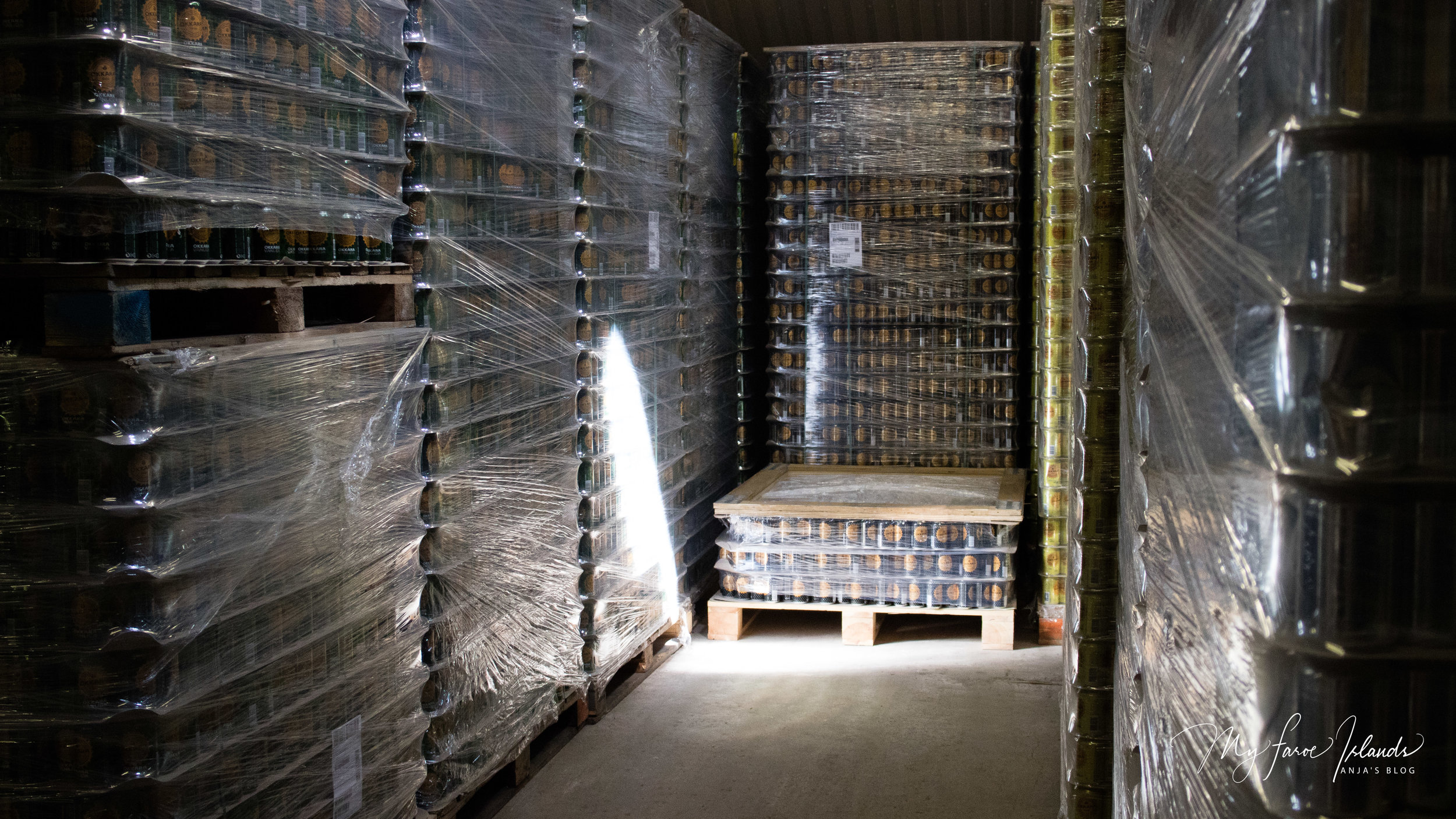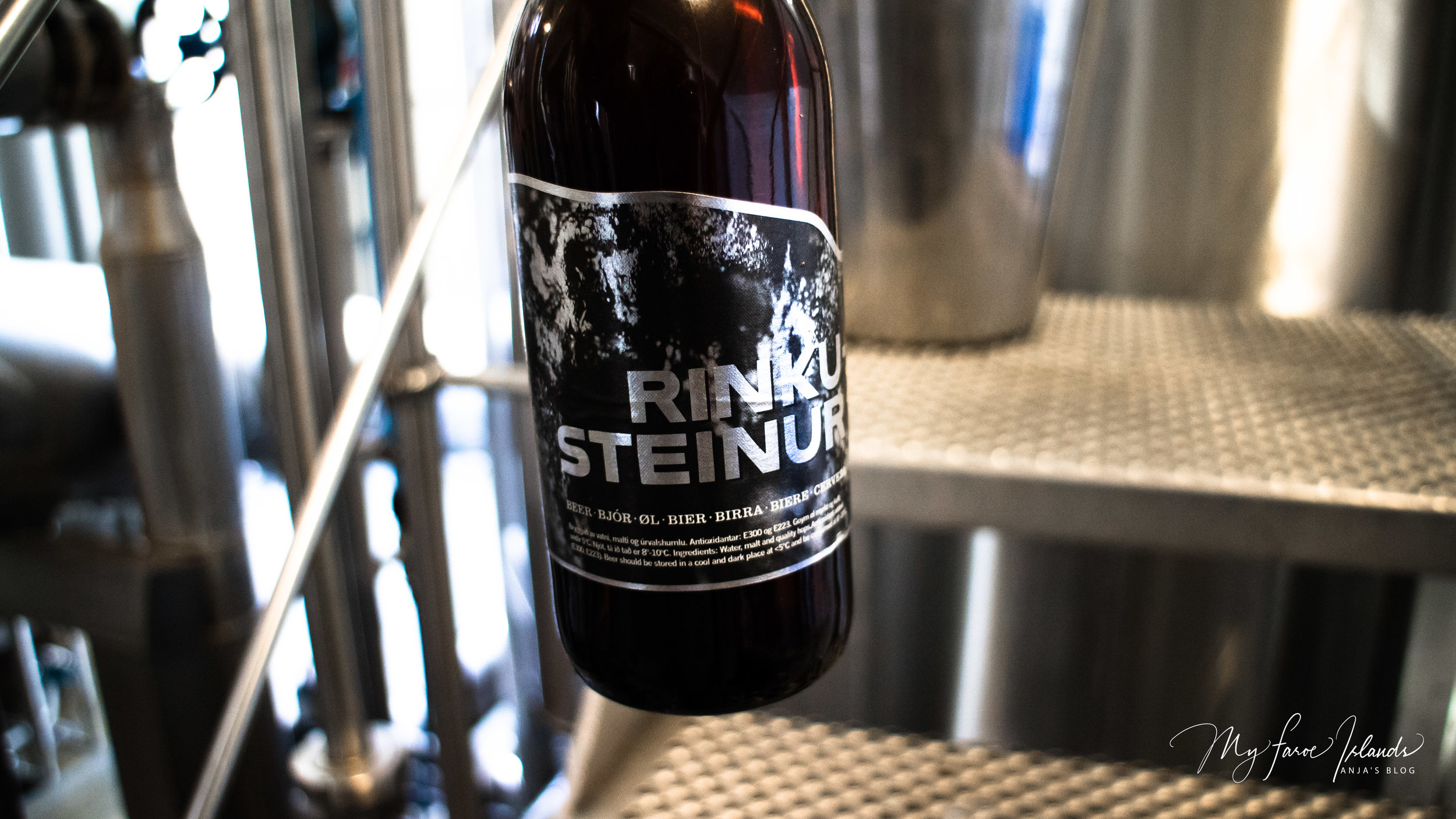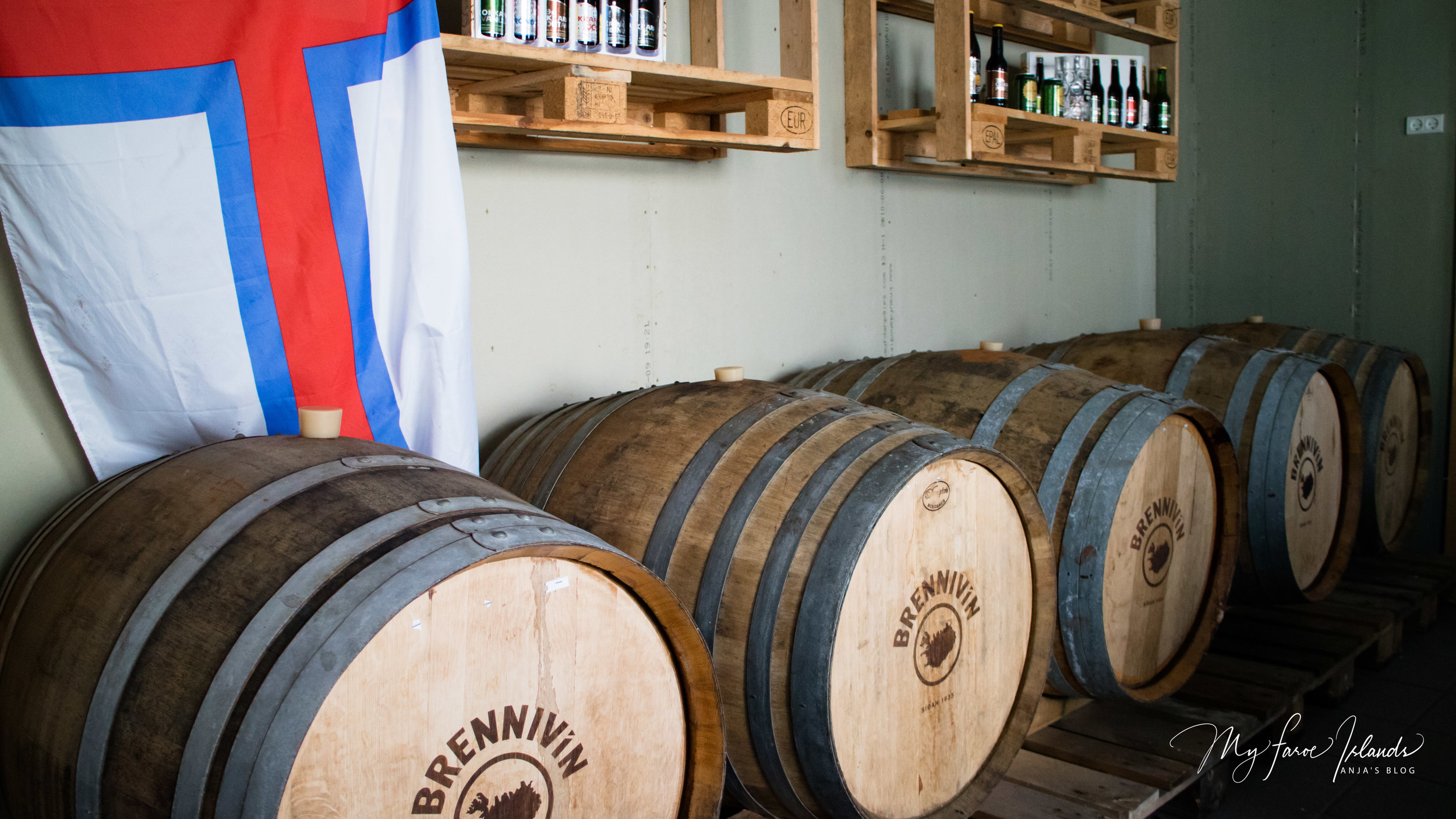Tanks, taps, tubes, control buttons. On the southern west coast of Streymoy; close to the houses of Velbastaður, nicely strung-out along rural roads. A factory hall overlooking the islands Hestur, Koltur and the flanking fjord. Inside the unadorned building: magic and technology, happening at the same time. Bags, kettles, assembly line, storage depot: a tightly controlled procedure. Base materials interacting according to a master plan, creating something completely new. The end product: liquid, diverse and utterly tasty.
Welcome to the world of OKKARA, the smaller one of the two Faroese breweries. Faroese for beer: øl and bjór. Why am I telling you this? Because it’s Petur Petersen who is giving me a tour. Nickname: Petur Øl. Job description: Ølstjóri. Beer CEO. The face of OKKARA.
Setting up a brewery on an archipelago in the middle of the North Atlantic, with Føroya Bjór being the old-established firm: a bold venture. Nonetheless, Høgni Jensen – OKKARA’s master brewer nowadays – and a group of Faroese businessmen believed in the challenging idea. In 2007, the equipment for the OKKARA brewery was shipped to the Faroe Islands. From Copenhagen, as Petur tells me, "and in July 2010, we started to sell beer."
OKKARA means 'ours'. A fine-sounding brand name that has been brought back to life. "Back in 1908, the name Okkara used to be tied to a milk factory“, Petur explains, "later to a company producing soap, margarine and marmalade. Between 1979 and 1981, the two factories stopped their work in the Faroe Islands, leaving a profit that was reinvested by the owner family years later.“ Continuation of the story: Entrepreneurial spirit, family member Høgni taking a deep interest in the art of brewing beer, provision of funds, purchase of equipment, OKKARA’s launch, a microbrewery starting to earn people’s trust and loyalty and Petur Øl representing the greater beer whole.
Range of OKKARA products: Mainstream (Vanliga, Klassik, Gull and Cider), seasonal beer (spring, Christmas, Ólavsøka) and specialities. In the Faroe Islands, the legal drinking age is 18. OKKARA beer is sold in the national monopoly stores (Rúsdrekkasølu Landsins, Rusan) all around the islands, also in two OKKARA stores in the capital Tórshavn. OKKARA’s current production volume: 400,000 liters per year and rising. "In the course of 2018, our business will reach the break-even point“, Petur tells me. And that the Faroese – like people elsewhere – are more and more interested in craft beer.
Therefore: three special OKKARA beers. PORTARI: A stout with a blend of malty flavors rooted in pilsner, caramel and smoked malt. Food pairing: Chocolate cake and cream-based desserts. RINKUSTEINUR: A top fermented ale, aged with Faroese rocks. The porous rocks (heated to 800 degrees Celsius and placed in the beer wort) caramelize the brew. Food pairing: Dark meat, ræst kjøt (semi-dried lamb) and cheese. GULLHORNI: An English-style India pale ale. Hazy and yellow, fruity flavor (from citrus to mango), delightful bitter finish. Food pairing: Fish dishes, spicy foods and ramen soup.
Gullhorni has been brewed in collaboration with the Danish brewery Mikkeller in the Faroe Islands. Another beer liaison that has been formed recently: OKKARA and Borg Brugghús from Iceland, the master brewers Høgni and Árni creating a 'North Atlantic Stout'. At present, the beer comes to maturity in Brennivín (Icelandic schnapps) casks. Promising-looking barrels that have been stored inside the plain factory hall on the hillside of Velbastaður, room decorated with a huge Faroese flag.
The OKKARA brewery: Five permanent employees plus aides. Brewing capacity: up to 1 million liters per year. OKKARA. Home of a fascinating process that is not only driven by the main ingredients – malt, water and hops – but also by creativity, continuous development, brand presence, quality and hard work.
The microbrewery on Facebook: OKKARA. Update: In 2020, OKKARA was sold to the company Føroya Bjór.
